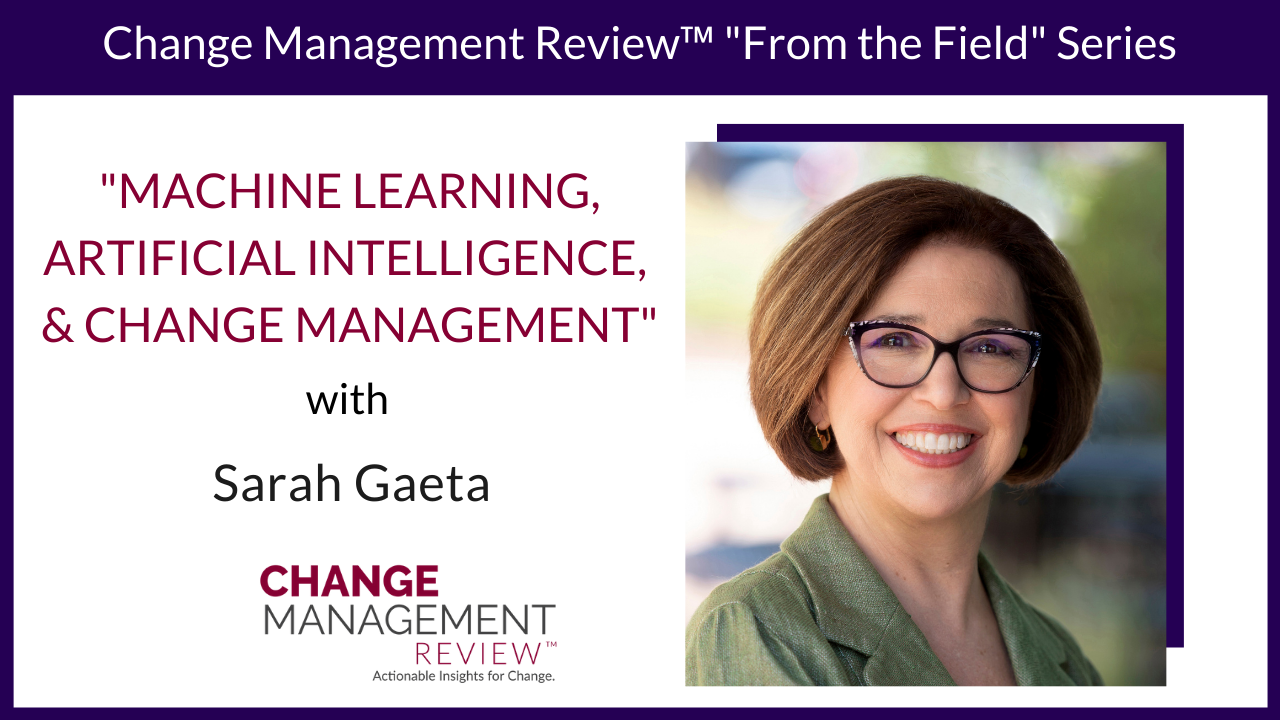The rise of artificial intelligence (AI) has transformed the business landscape in numerous ways.
It has a huge impact on organizational change management (OCM) projects.
OCM involves preparing and supporting individuals, teams, and organizations in changing their work processes, structure, or culture.
While implementing AI in OCM significantly increases efficiency and effectiveness, it does not replace strategic planning by dedicated change managers.
In fact, combining AI and strategic planning leads to successful adoption of changes within an organization.
The use of AI in OCM can be seen in a variety of ways – one of them through data analysis.
AI collects and analyzes data from several sources, including employee feedback and performance metrics.
This provides insights into how well the the organization adopts change and where change managers can make improvements.
Therefore, this saves change managers significant amounts of time and effort that otherwise goes toward manually analyzing data.
AI also provides predictive analytics, helping change managers anticipate potential obstacles to adoption.
This also helps them develop strategies to address them before they occur.
Another way AI improves OCM is through automation.
Change manager can automate OCM tasks, such as communicating with employees and tracking progress, by using AI-powered tools.
This frees them up to focus on more strategic tasks, such as
- identifying the most effective change management strategies and
- engaging with stakeholders.
However, it is important to note that using AI in OCM does not replace the need for strategic planning by change managers.
AI is a tool that helps change managers make more informed decisions and streamline processes
However, it does not replace the knowledge and expertise that those with change management experience bring to the table.
These professionals must still identify change goals, develop a strategy to achieve those goals, and communicate with stakeholders throughout the process.
One of the biggest challenges in OCM is ensuring that employees adopt the change.
This requires effective communication and engagement strategies, as well as a deep understanding of how the change will impact employees.
While AI helps collect data on employee sentiment and provides insights into potential obstacles to adoption, it does not replace the need for change managers to engage with employees directly.
Change management requires an important relational element with key stakeholders and impacted end users in order for the change to be adopted or successful.
Change managers should work closely with managers and other stakeholders to identify potential concerns or resistance to the change.
Then, they can develop strategies to address these concerns.
They can provide training or resources to help employees adapt to the change,
Or they can develop communication strategies to help employees understand why change is necessary and how it benefits them in the long run.
Another important aspect of strategic planning in OCM is identifying the right change management methodology to use.
Change managers can use a variety of methodologies, including ADKAR or Kotter’s change management theory.
Each methodology has its own strengths and weaknesses.
The right one to use depends on the specific goals and needs of the organization.
AI helps identify which methodology is most appropriate for a particular project.
This is done by analyzing data on past projects and identifying which methodologies were most successful in achieving their goals.
However, change managers must make the final decision and adapt the methodology as needed to ensure it is a good fit for the current project.
Finally, change managers must also be responsible for monitoring and evaluating the success of the change.
Change managers must use collect and analyze data on an ongoing basis to ensure change adoption and achieve the desired results.
Certainly, AI helps automate some of these tasks.
However, change managers must interpret the data and make decisions based on their own expertise and knowledge of the organization.
In conclusion, the use of AI in OCM can significantly increase efficiency and effectiveness.
That said, it does not replace strategic planning by change managers.
AI is a tool that can help change managers, but these professionals are key in achieving a company’s desired change results.
Discover more about this topic on this podcast:








